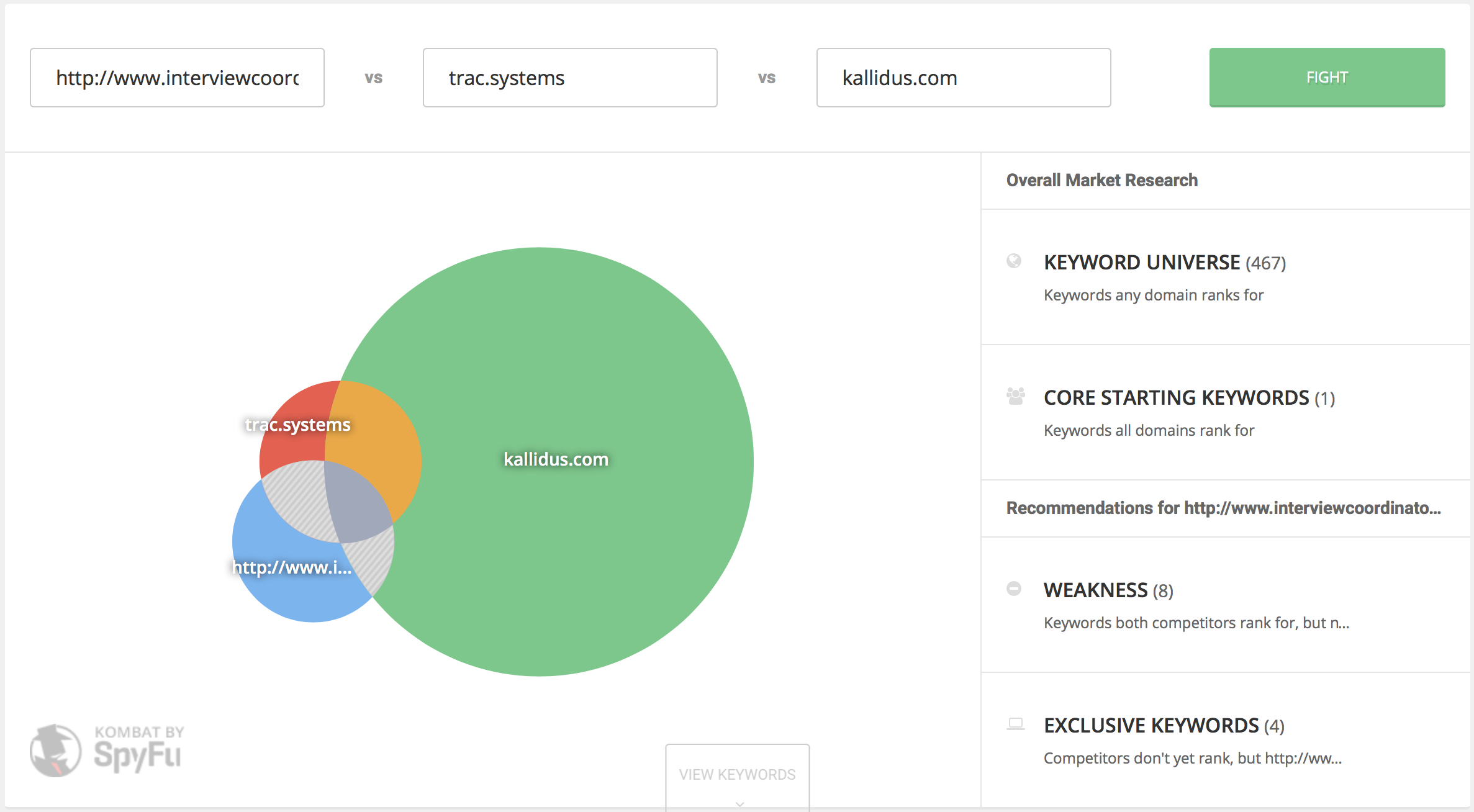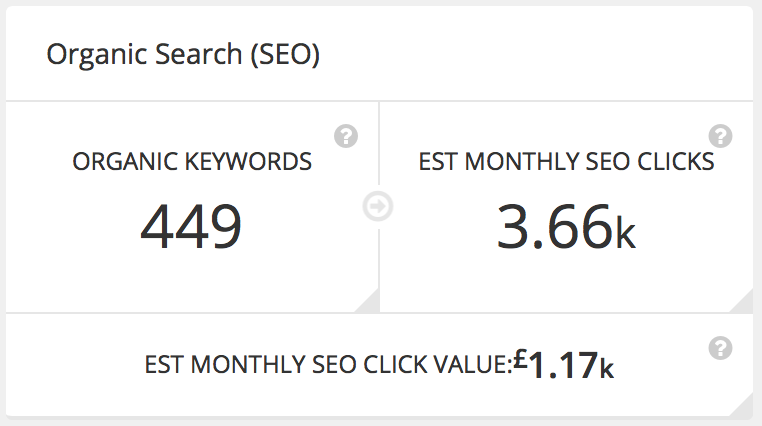SEO can seem like a mysterious process for business owners. There's a lot that goes on behind the scenes, and certainly at Cambray, we find that B2C business owners aren't sure why SEO is necessary, or whether they will see return on their SEO investment. To help B2C business owners understand why SEO is so integral to their business growth, here are 6 reasons why SEO is important for B2C businesses.
SEO increases your site traffic
Of course, most people know that SEO is the process of increasing the rankings of your website by helping its pages rank well for more searches. And this is so important, as 75% of people won't even scroll past the 1st page of Google results!
Therefore, by increasing the search engine rankings of your site pages, SEO directly improves the amount of traffic coming to your site.
But did you know that it also improves the quality of your site traffic?
According to Moz' explanation of SEO, increasing your search engine rankings brings more traffic to your site, but also a better quality of traffic. People who visit your site are doing so because Google tells them that your site is a relevant and helpful resource. Meaning they're already searching for a product like yours, or for a problem or solution that you can help with. This makes them much more likely to purchase from you vs. 'cold' traffic.
And if you know who your ideal customers are, you can gear your SEO efforts towards attracting more of them. You can research the keywords these high-value customers are searching, the types of content they consume, and find the marketing messages that resonate with them. This increases the chance that your ideal customers will a) find your site, and b) be persuaded to purchase from you.
SEO helps you to stay ahead of the competition
Investing in SEO also helps you to stay ahead of your competition.
Paid advertising is competitive and expensive. It can be hard to outrank a competitor that has a high advertising budget, as their ads will be displayed at the top of search engine results pages (SERPs).
But SEO is a much more cost-effective way of ranking organically - without having to spend money on paid ads. And studies show that users are 94% more likely to click on the first organic search engine result over paid ads anyway!
You can also use insights into your competitors' SEO strategy to help you get ahead with your own SEO efforts.
Using Spyfu's handy SEO competitors tool, you can identify your direct competitors based on businesses that target similar keywords. You can then also discover any weaknesses in their keyword list. This helps you work out which keywords you have a good chance of outranking them for, and which ones are too competitive to target.

You can also use tools such as Monitor Backlinks to keep track of your competitors' backlink strategy. This handy tool will send you a complete list of all the backlinks to your competitor's site. It will also tell you which are the highest and lowest valued links, as well as the link anchor text, whether the link is dofollow or nofollow, and the page rank. This data can be used to improve your own SEO campaign.
You can work out the direct ROI for your SEO efforts
For many businesses, SEO seems like a dark art. Do you often worry that you won't be able to attribute return on investment (ROI) to time, money, and effort spent on SEO?
Spyfu also offers an SEO overview feature (shown below). This uses the number of organic keywords you rank for, their position in search engine rankings, as well as the number of clicks that each keyword generates to estimate a monthly SEO click value.
In the below example, you can see that this company's SEO efforts are bringing them in £1.17k in revenue per month. This information will help you to work out whether your SEO efforts are bringing ROI, and can be useful indicators of whether your SEO strategy needs to change, scale up, or scale down. - No longer a dark art!

SEO is great for reputation management
Google tends to rank review sites such as Trust Pilot as high-quality. So, pages from these sites rank well in search engines. This means that bad reviews for your business are likely to stick around. And for B2C businesses, a bad review that ranks well in Google can be the end of a good reputation.
Whilst SEO and reputation management are often separate efforts, there are many ways that an SEO strategy can help manage and improve reputation.
A clever and well-implemented SEO strategy will use keywords, backlinks and outreach to ensure that your site, all of its pages, as well as more positive external links to your website, are deemed as authoritative by Google. This increases the number of your desirable pages that will rank on the first page of results.
The more pages of your site that are marked as authoritative, the better they will rank. This pushes bad reviews further down search engine rankings and eventually onto the second or third pages of Google. - Essentially making them invisible to your customers.
SEO improves customer satisfaction and lifetime value
People often think that they are finished with SEO once they've completed their keyword research and optimised their site. However, investing in long-term SEO can drastically improve customer satisfaction and customer lifetime value.
Optimising your site for SEO doesn't just mean using an appropriate amount of relevant, high-volume, low-competition keywords in your website content. On-page SEO also includes improving the user experience of your site. This makes visitors more likely to spend longer on your site, visit more pages and consume more of your information. - All of which signals to Google that your site is high-quality and authoritative.

Ongoing keyword research and SEO content production will also make sure you're continually producing content that is relevant, interesting and targeted to your ideal customers. And equally as important, that they're likely to find this content ranking well in search engines.
This keeps customers coming back to your site again and again, for more information and more content.
SEO improves conversion rates
This is perhaps the most attractive benefit of SEO, especially for B2C and e-commerce businesses. It's certainly the one that makes our clients' eyes light up during sales meetings.
When your keyword use, content, backlinks and site optimisation are all tailored to appeal to your ideal customers, they are more likely to find your site relevant, interesting and useful. Your ideal customers are more likely to find you in search engines. They're more likely to purchase from you. And they're also more likely to recommend you to others, and to return for more.
When the right people are coming to your site more often, and they are engaged and delighted by your information and content, you'll see a dramatic increase in site conversions.
SEO recap
In conclusion, SEO is important for B2C businesses for the following reasons:
- It increases both the amount and quality of your site traffic
- It gives you insights into the SEO strategies of your competitors, helping you to stay ahead
- You can work out the direct ROI for your SEO efforts, understanding when to change, scale up, or scale down your strategy
- It is an integral part of a reputation management strategy
- It improves customer satisfaction, retention, and boosts customer lifetime value
- It dramatically boosts your conversion rates by ensuring the right customers are coming to your site more often
But with an over-saturated SEO market and Google's consistently evolving algorithms, it is becoming more and more difficult to implement an SEO strategy that catapults you ahead of the competition. That's one of the reasons why it is so important for businesses to invest in their SEO, and also why many companies are turning to external agencies for SEO expertise.
Are you having a hard time convincing the higher-ups to invest in SEO within your company? Or perhaps you're a business owner who wants to get their team bought-in to SEO? Either way, why not share this article with someone you know?
Coming soon: The Cambray 2019 Complete SEO Checklist Pack



